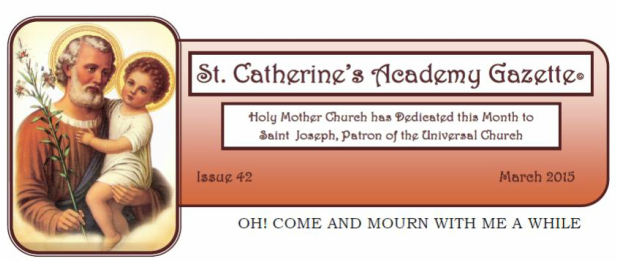
 Our school gazette for March 2015 is now available to print or download. You can find it on our download page. We hope you enjoy it. If any of you have suggestions of topics you might like to see in the gazettes please let us know.
0 Comments
Mortification
The word mortification conveys an unpleasant meaning; it indicates every kind of restraint that we can impose upon ourselves either in fulfilling of our duties, or with the purpose of correcting our faults, of making amends for sins committed, or of making progress in holiness, because mortification serves all these various ends. There is a distinction to be made between interior and exterior mortification. The first consists in the violence we do to ourselves, in order to direct and control our mind, our memory and imagination, to forbid to ourselves bad or useless thought and desires, and to supervise and discipline in general all the acts and sentiments of the soul. Exterior mortification comprises the privations, restrictions, punishments, that one may inflict upon body or senses; the eyes or ears, the taste, touch, or smell. To refrain from looking at something which we may properly enjoy, to shut our ears when curiosity would have us listen; to deprive oneself of some sweet dish, candies, or at least to take less than would be allowed to us; to hold oneself erect instead of indulging in an easy or comfortable attitude; all these are practices of bodily mortification, and there are numerous others, for which our daily life offers opportunities. As already mentioned, all this is not pleasant to contemplate; we all have an instinctive horror of restraint and we should much prefer to listen to something else and more pleasant than the disciplining of senses and sentiments. Perhaps you fall into the error of believing that mortification does not concern you, that it is a thing for devout persons alone, those eager for sanctity, or for those who retire into convents to do penance, like the monks and sisters; as for yourself, it suits you better to think that such austerities are not for such as you. It is true, that it is not for you to imitate the severe penances of these holy souls, but it does not follow that a little mortification is not wholesome even for children such as you are; in fact, mortification is of the greatest benefit to you. Let us consider why this is so. First of all, I am not aware that our Saviour Jesus Christ made a single exception when He said: “If any one would come after me, let him renounce himself and carry his cross.” This law is absolutely general, it applies to all, not excepting even children, otherwise our Lord would not have failed to tell us so. Besides, it could not be different. Why must we renounce ourselves and carry our cross under penalty of not being the disciple of Jesus Christ? Because it is the means necessary to avoid sin. We all are born with bad inclinations; there are within us the roots of all evil always ready to yield a harvest of every kind of sin. If you search your soul, what do you find there? Be sincere about it! You find there for instance the root of pride, of envy and jealousy; then there is the root of idleness or that of gluttony. Why do you get angry the moment you are bidden to do something? Why do you sulk? Why do you toss your head and look disdainfully at companions whom you consider to be inferior to yourself? Why are you proud of new clothes or hat, and of your finery? This same pride begets in you a number of foolish thoughts, of absurd pretensions, of harsh words: thus you commit many sins, and what will happen in the future if you do not combat this pride, if you do not mortify it? Pride is the father of all vices, there is no crime that it can not produce, and, beginning with Satan, the fallen angel, almost all bad people began their wickedness with indulging in sinful pride. Again, why are you so long about rising in the morning? Why take so long to dress? Why this horror of work? Why do you not know your lessons? Why are your exercises badly written? Why this greediness, this unseemly behavior at table? Why this secret pilfering of cake or candy? These are the fruits of laziness and gluttony. You have no energy, you think of nothing but your comfort, your beloved self, you recoil from making the least effort. Yet if you do not declare war upon these baleful inclinations, if you do not mortify them, already so productive of many sins, to what will they lead you later on? IF an unfortunate person ventures upon quicksand or swam he sinks because there is no solid foundation; he sinks deeper and deeper; his limbs and feet become imprisoned in sand or sticky mud, he had no support, he sinks gradually to his chest, to his shoulders, his mouth, his eyes, he suffocates and is completely submerged. This is the picture of the child who is indolent, and does not combat his indolence; he is swallowed up gradually in the mire of sin and vice until his mind and heart are buried and suffocated. It is for you a question of life or death of your immortal soul, and mortification means the life and health of the soul, just as moderation in natural cravings means the health of the body. The body itself is the better off for proper mortification; the physicians agree, for instance, that the restraints practised in Lent benefit the health of the body, as they should that of the soul. Do not, therefore, be scared when you are exhorted to mortify yourselves; remember that your welfare is at stake. There is another good reason for mortification which should appeal strongly to your young hearts, and that reason is piety, and love of God. A child who really loves God, and who has an ardent desire to make a good First Communion cannot help feeling instinctively what a beneficial thing mortification is and how efficacious for this end. He will recall the faults he has committed, he will detest them with his whole heart because they form an obstacle to his perfect union with our good Lord; his greatest wish is to be cleansed from his sins, he desires to do penance for them. He shows his deep sorrow for having offended God by depriving himself of some little pleasures, or by inflicting upon himself other restrictions in the way of voluntary expiation. This child knows that his sacrifice is agreeable to God, not only because it shows a sincere repentance, but because it is also a proof of love. To love is to give; we should therefore give something to God, something which costs an effort in the giving, a sacrifice, a deprivation, a restraint, and this is why many little boys and girls, without anyone being aware of it, refuse themselves dessert at table, desist from speaking at certain times, impose upon themselves strict attention at Catechism or in class; rise in the morning at an earlier hour, or practise self-mortification in other little ways. Very likely no one about them notices this. So much the better, as vanity might spoil it all. God sees it, the angels register faithfully all these little sacrifices, which become so much accumulated wealth, the revelation of which is reserved for the day of judgment to be transformed on that day into a great glory for those good children. In the meantime as a temporary reward for these sacrifices, God lets His graces flow abundantly upon these pious and active little souls, and they may rest assured that their First Communion will be holy and fruitful of all graces. And this is how mortification, at first repulsive, becomes to good children acceptable and even pleasant and desirable. Set to work then courageously! Do not be so fond of your ease, do not give way to indolence, let not a day pass without making some little sacrifice; give to God a share of your daily pleasures and recreation. Those of you who enjoy the conveniences of life, remember the many children who lack many things, pleasures, leisure, clothes, delicacies, or, horrible thought, even their daily bread, and then you will not hesitate to deprive yourself once in a while of cakes or candies, and ask permission of your parents to give some alms to the poor and needy. Remember how our Lord Jesus Christ endured so many privations, from the first to the last day of His life; compare your cozy little bed to the piteous crib at Bethlehem, your comfortable room to the plain house at Nazareth, your pleasures and leisure to the hard work and privations of the boy Jesus in the shop of Joseph the carpenter. Remember also, the cruel sufferings of Jesus in His Passion, and His painful death upon the Cross, and if you have a sorry feeling at all, you will be almost embarrassed at finding yourself so well cared for, when Jesus lived a life of work and privation, and you will not wish to approach Him, or to became invited to Him in Holy Communion, without resembling Him at least by some small practices of mortification. Source: Conferences to Children on Practical Virtues, Imprimatur 1912 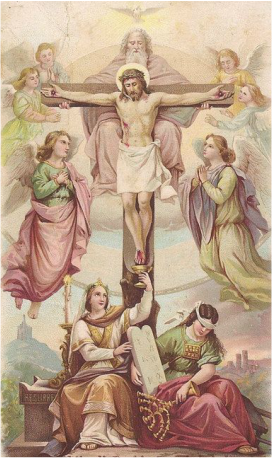 Each one of you knows what a crucifix is; and every good Catholic boy and girl has one somewhere. But we often look upon it and do not feel a bit sad; and yet if we love Jesus, our hearts go right out to Him in pity and in sorrow when we see Him nailed to a cross. Don't you think so? Well, my boys and girls, the best thought for these weeks of Lent is the thought of the Crucifixion. if we think rightly of the Saviour suffering on the cross, we will feel compassion for Him; reflecting that He endured that terrible death for us, we will be filled with gratitude towards Him; being so thankful we will love Him and love of Jesus is everything. How would you feel if a building were burning, and a little boy were being burnt to death right before your eyes, and nobody could help him? See, the boy twists and squirms and cries in dreadful agony. What do you do? You grow pale and sick; you just feel his awful pains; you cry and moan too. Now you should try to think so much of the sufferings of Jesus, at this time especially, that they become just that real to you and you suffer with Him and want to ease His pain by loving Him with your whole heart and soul. The suffering Jesus is compared to a lamb: "He was like a lamb to the slaughter." What a gentle creature a woolly little lamb is! What a lovely pet! suppose you had a sweet, snuggling, trusting lambkin. And then suppose bad men would come and take your lambkin that had done no wrong and that could not help itself. And suppose they would drive stakes through its quivering body, and fasten it against the wall and slash its body right and left with a big knife and then leave it there to die. Oh, how that would break your heart, how bitterly you would weep over your poor little lamb. But then why don't you weep or at least feel very, very badly over Jesus, the Lamb of God? He was gentler, sweeter, more trustful, and more loving than anything we can imagine. He never did anybody any wrong, but did good to all. And yet bad men came and cut and gashed His Body from head to foot with terrible whips, and drove long, sharp thorns into His head, and threw Him down on the rough beams of the cross, and drove big iron nails through His hands and feet into the wood, and raised the cross up and let it drop into a hole, and then left Him there to die! Oh, ask Jesus to help you feel sad for Him! And how you just hate those who nailed the innocent Lamb of God to the cruel cross! But now, He died for our sins; sin nailed Him to the cross - also your sins. How you must hate all sin and promise Jesus never again to commit it! Isn't a little baby that's just beginning to walk a darling thing too sweet for anything but one soft kiss and one loving hug after the other? Suppose you had such a dear babe at home. And suppose that someday dreadful men would come, as once they came to butcher the boy babies in and around Bethlehem. And suppose they would take the baby in their rough hands and tear its clothes away, and stretch it out on the wall and fasten it tight by driving big nails through its little hands and feet, and then leave it there to die. Oh, how terrible! Wouldn't you scream and moan in terror and in fright and wouldn't your heart just burst with grief to see that tender baby treated like that? And still every time you look upon your crucifix you are reminded of the more frightful sufferings of our dear Jesus, Who was sweeter, lovelier, dearer, more innocent than ever a little child could be. You were shocked when I told you about the baby nailed to the wall. Are you shocked when the crucifix tells you about Jesus nailed to the cross? Why are you shocked at the one and not at the other? Ask the Saviour to help you feel sad, to be grateful, to hate sin, and to love Him more when you look upon the cross. O, my boys and girls, it must surely make us love Jesus and be very good, this thinking of His passion and death. Surely, if we don't love Jesus when contemplating Him dying on the cross, well never love at all. Isn't it all sad though! It reminds me of the Old Testament story about Joseph. You remember how his wicked brothers took him and cast him into a deep pit and then sold him into slavery. And, remember, Joseph, their younger brother, did them no wrong. He came to see how they were getting along and to do them good. So it was with Jesus; He came from Heaven for our salvation; He went about doing good. But those for whom He did so very much did not cast Him into a pit and sell Him into slavery. No; they did worse; they sent upon Him torments of unspeakable sufferings and finally put Him to death on the cross. Once there was a boy who wouldn't take the medicine the doctor had prescribed. It was too bitter. But his mother showed him a crucifix and said, "See what he suffered for you. Take the medicine out of love for Him." And the boy took it. In how many ways are you going to show the love you feel for Jesus crucified by little acts of self-denial after this? Source: Talks to Boys and Girls, Imprimatur 1930 , 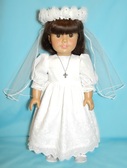 We would like to introduce our newest costume for 18" dolls; A beautiful eyelet First Communion dress. It is tea length has short sleeves with lovely entredeux cuffs. The veil is attached to a wreath of silk roses and is waist length. You can view and purchase it at Bella's Boutique. 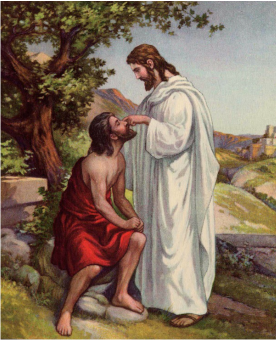 In this Gospel the Church teaches us something of the Passion of Our Lord. About this time of the year a certain part of the world is going crazy with carnival; people imagine it great fun when they put on masks, dance, and walk about in processions. But the Church wishes her children to think of the Passion of Our Lord, and on these days she asks them to be more zealous and fervent. Sin is the cause of the Passion of Our Lord; we crucify Our Lord again and make Him an object of mockery. We have not the same customs here that exist in Europe at carnival time, but by degrees they are creeping in here, too; let us consider the great damage it does to the young people of those countries, and draw from it a lesson which will be very useful to us. We can also judge from it what would be the consequence of following similar indulgences at any time of the year. These applications can be made to our picnics, moonlight excursions, and dances. On the approach, of the carnival the Church redoubles her prayers, and puts on the garb of penance, because so many sins are committed; for this reason, too, the saints of the Church, the friends of God, do more penance that God may be kind to the people who are indulging in these excesses. St. Francis de Sales used to call the carnival days hours of pain and grief to the Church. What disorders, dissoluteness, unlawful relaxations are committed in those days! St. Vincent Ferrer used to think of the approach of those days with horror, for, with unbounded license, people would commit sin after sin without giving themselves time to think. St. Catharine of Sienna was accustomed to cry out with groans, "Oh, what an unhappy time! what a diabolical time!" Day and night she would invoke Our Lord. When the carnival is open you may well say that heaven is closed. The reprehensible things about the carnival are things that are considered dangerous at all times, such as masquerade balls and theatres. St. John Chrysostom considered the theatre the worst place, where the vilest spiritual diseases may be contracted. St. Augustine called the theatre of his day the pomp of Satan. St. Cyprian speaking of it says it is the innovation of the devil; apply all this to picnics and balls too. Now, my good young people, whom would you rather believe; would you rather believe your own passions that drag you into considering these things small matters; would you rather believe our modern, loose Christians, who consider the theatre the school of virtue? Or would you not rather believe those great doctors whom I have quoted, who studied much, and who were enlightened by almighty God? You will say that you always criticise the title of a play before you go. That is nonsense; you know that the name of a play does not give a clue as to whether it is moral or not. What about masquerade balls? The dance is one of the greatest occasions of evil, especially for young people. A youth that loves the ball-room will sooner or later fall into grave sin. "He who jokes with the devil," says St. Peter Chrysologus, "cannot reign with Christ." St. John Chrysostom declared vehemently against dancing; he says it is the innovation of the devil, and those who engage in it cannot escape the snares of the devil. All the saints have said the same thing. During these days of the carnival, especially, let us not form part of the world that has gone crazy, we may say. There is no objection to modest recreation nor to simple enjoyments. Endeavor to compensate Our Lord Jesus for so many sins committed during this time. With great love, visit a church where the Blessed Sacrament is exposed, pray, and receive from Him spiritual joy of which the world knows nothing. In this way you will not put your salvation in jeopardy nor will you, as often happens, ruin the health of the body, as is frequently the case. I myself have seen on the last days of the carnival a funeral procession, and on asking for whom such display was made, was told that it was the funeral of a youth of sixteen years. A few days previously he had taken part in the carnival procession; he had gone to the theatre and to a masked ball. Here he had become overheated, caught cold, contracted pneumonia, and in a few days died. Had he obeyed his parents, had he been reasonable in his enjoyments, he might have saved his life. But let us return to the Gospel; while Jesus was in the vicinity of Jericho, a poor blind man who sat by the wayside begging, hearing the approach of a great crowd, asked what this might be. They told him that the Great Prophet, the Son of David, was passing by. Then he raised his voice as high as he could, and cried out, "Jesus, Son of David, have mercy on me." Can you not easily see in this poor blind man the figure of a poor sinner? How terrible is the blindness of sinners! They know that by sinning they lose God, that God who created them and redeemed them; they know that theyhave lost the right to heaven; they sin frequently and without any remorse. What blindness thus to insult almighty God, in whose presence they commit these sins; that God who could annihilate them or could at any moment precipitate them into the flames of hell! Sometimes, by the grace of God, the blind sinners open their eyes to the real state of their souls; they see their misery and their danger, and return to God while it is yet time, and break the chains that hold them bound to the servitude of the devil. Then they ask themselves: Who is this Jesus who is passing by? The truth will suddenly shine on their souls. This is the Saviour of souls, the healer of the blind and of all diseases, especially of the soul. Then in earnest they will raise their voices to Our Lord and cry out in humility and compunction of heart, "Jesus, Son of David, have mercy on me." But you know that the world does not like these exhibitions of piety, the fashionable world does not want to be disturbed by these cries. The passions so natural to our frailty and increased by indulgence, are urged on by the devil, who gives us occasions of sin. Our old companions who continue in theirevil course would like us to do the same; these lay their hands on the mouth of the sinner that he may not cry out, and tell him that he should be ashamed to make such an outcry. This is the inner voice that we feel; the voice of conscience that admonishes us and the voice of the body that speaks of enjoyments that are the death of the soul. How the sinner hates to be disturbed by these contending claims! The good voice is hated by the sinner, and he tries to silence it. Again he shuts his eyes and listens to the wicked voice, so that joyously and carelessly he goes on sinning. He has abused once more the grace of the voice of God speaking to his soul. Sinners become ashamed of having ever been modest and pure in word and action, ashamed of ever having loved God, and ridicule the holy maxims of the Gospel. What blindness and perversity this is! Should any of my hearers be of the number of those who have been blind, let them arouse themselves by prayer, and then the grace of light will also come to them. How tearfully and sadly St. Augustine describes these dreadful days of his own blindness, "I went from one disorder to another, from one precipice to another, like one that was blind." When Jesus heard His name called in that strong way. He stopped, and gave orders that they should bring the poor man to Him. "What wilt thou that I should do for thee? " asked Our Lord with the most loving condescension. "Ah, Lord, you see what I need. I am a miserable blind man, give me the light of my eyes." What a beautiful prayer, how short, how affectionate it was, what great good it accomplished. This same petition we too should continually make. "Lord, that I may see." This spiritual blindness, ignorance, and darkness must be removed; we must be able to see clearly. Give me intelligence, that I may know things rightly, that I may from my earliest days know the wickedness of sin, for now in my blindness it looks so attractive and so beautiful. Lord, make me see the great danger there is in the world, that I may be on my guard and not fall a willing prey to the wiles of Satan. Lord, let me know what company I must avoid, let me see the foolishness of thinking much of riches, excepting in so far as I may be able to use them for the good of others. It is vanity to indulge the appetites of the flesh and to desire that which, if consented to, will bring upon me great punishment. Let me, Lord, see the vanity of wishing for a long life; give me the grace to be contented with a short one and so to labor during it that I may enjoy the heavenly sight of paradise. The good Lord answered the prayer of the blind man, saying, " Thy faith has cured thee," and immediately the eyes of the blind man received their sight. Filled with joy he followed Our Lord, giving Him praise, and all the people who saw the great miracle also gave praise to God. See, my young people, what grateful recognition you owe to almighty God for the corporal and spiritual light of your body and soul. How often has God given the power of vision to your soul! You certainly remember the darkness in which your soul was cast when you fell into mortal sin. Bodily blindness may bring some good to the soul, for then we cannot see the dangerous occasions which might lead us into sin; the alluring aspect of the objects of our passions cannot be seen by us, and hence cannot excite our imagination; but the blindness of the soul gives the devil power over us. As soon as God enlightened your soul you saw the dangerous situation in which you were. He stretched out His hands to raise you up, and what appeared to you so beautiful and attractive now looked so hideous that you were terrified, and willingly fled from it. What a great grace this was to you! He made you know what was good, and gave you grace to love it. Thank almighty God for these spiritual gifts, praise Him for being so good to you. We cannot sufficiently appreciate whatGod has done for us in giving understanding and light to our soul; but we will know it when, after witnessing the damnation of many souls, we will at last find ourselves in heaven. Source: Sermons for Children's Masses, Imprimatur 1900  A young man who was remarkable for his piety, although he was obliged to live amongst those who were worldly, was once asked what he did to keep himself from sin. He answered: "When I was a little boy about ten years of age, I was present at an instruction the priest gave us on how we were to do all for Jesus, and with Jesus, He said to us: 'When you awake in the morning, think that the Child Jesus is beside you, and say to Him: "O my Jesus, may I do all things this day to please Thee!" then begin at once to do all your actions as He did them when on earth. " 'When you say your prayers, think that Jesus is kneeling beside you, and adoring HIs Heavenly Father, and your prayers will be well said. " ' When you are at your work, think of Jesus labouring and toiling for His daily bread; and when you are tired and weary, the thought that Jesus was once tired and weary also will enable you to bear all with resignation. " ' When you are told to do something, imagine that you hear Our Lady and St. Joseph telling the Divine Child Jesus to do the same, and consider how diligently He obeyed them, and you will find it easy to be obedient. " ' When you have to suffer, recall to mind the sufferings of Jesus for you, and you will obtain patience to suffer for Him.' "I have never forgotten that instruction," continued the young man, "and in everything that happens to me, and in everything I do, I always think I see Jesus beside me, and I try to do all in the way I think He would have done it had He been in my place." O my child, what a beautiful lesson! How easy will it be for you to become a Saint if, like that young man, you take Jesus as your model and guide. Source: The Catechism in Examples, Imrpimatur 1909 |
Holy Mother Church
dedicates the month of July to the Most Precious Blood of Jesus COPYRIGHT
The purpose of this website is to share the beautiful Catholic resources that God has so richly blessed us with. All texts unless they are my own words have their sources quoted, and most of them are in the public domain. Any educational items that I have made for or with my children are NOT TO BE USED FOR PROFIT, but are meant to be used for personal use by individuals and families. You may link to our site if you so choose. A Saint for everyday and good reading at:
Archives
July 2024
|
||||||||
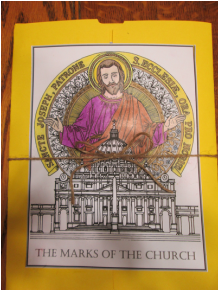



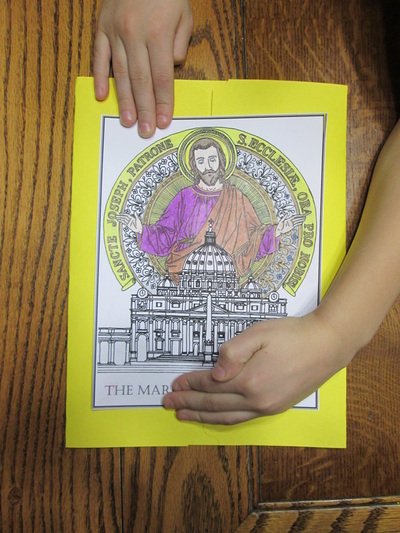
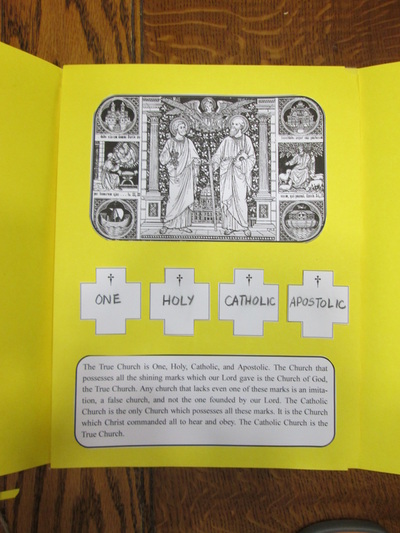
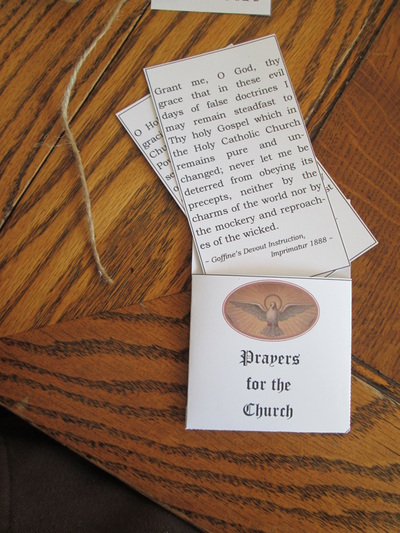
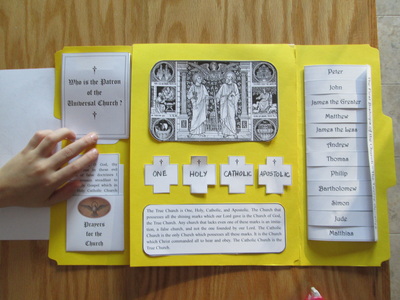
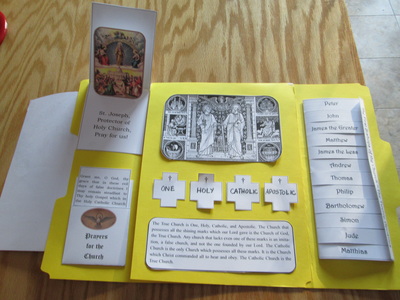
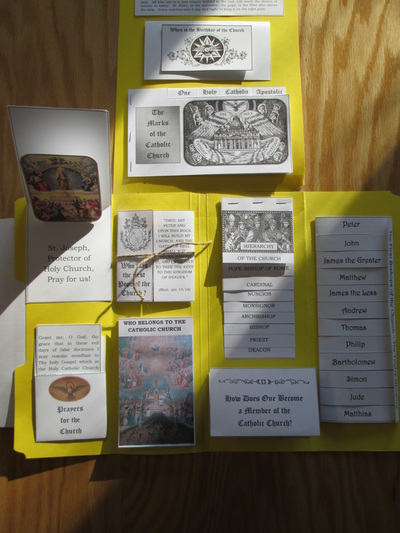
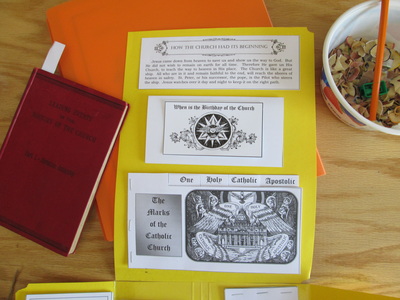
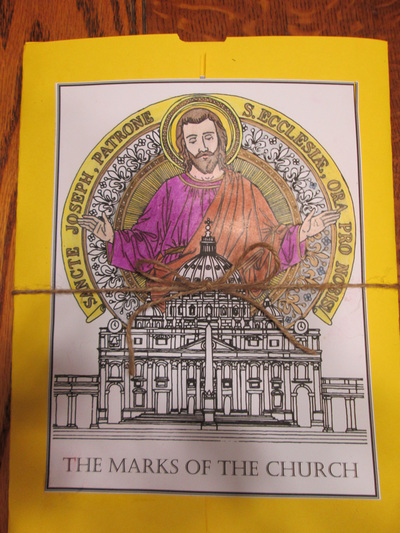


 RSS Feed
RSS Feed